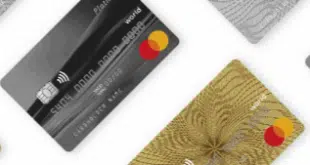Debitman Card Inc., a retailer-sponsored debit card network based in Chico, Calif., is moving aggressively on a new card-issuance plan that calls for increasing the base of Debitman-branded cards to just over 900,000 cards issued by 1,000 merchant outlets by the end of the year. The card base currently stands at about 3,000, while some 50,000 locations accept the brand. The new plan relies on new pricing incentives, effective immediately, that will share more of the company's transaction income with retailers that issue cards and with processors and independent sales organizations that sell Debitman to merchants. At the same time, Debitman is now targeting major retailers that already run proprietary payment programs based on the automated clearing house, the same system Debitman uses, to get the retailers to brand their cards with Debitman. Such merchants would be allowed to run on-us transactions without any processing fees to Debitman but would earn interchange when their cards are used elsewhere. And processors that serve those retailers would earn fees, as well, on non-on-us transactions. “Now processors can actively make money when cards are used elsewhere,” says R. Scott Hatfield, president of Debitman and a leading shareholder in the network. Hatfield is also executive vice president of National Data Funding Corp., an ISO in Chico that issues Debitman and is gearing up to begin a major sales push next week to market the card to merchants. After spending the better part of the past year concentrating on building up merchant acceptance, “we're now in an aggressive push to get cards issued,” says John K. Lannan, chairman and chief executive of Debitman, Under the new pricing structure, which the network's board agreed to late last month, ISOs and processors will earn 2 cents per transaction on the first 1 million monthly transactions a retailer's card base performs, a penny for each of the next 2 million, and a half cent for each transaction beyond 3 million. Debitman will look at transactions on a per-location basis, so resellers serving multiple locations may not aggregate transaction volume. Merchant issuers also stand to earn more than under the former Debitman pricing structure. They now get 6 cents for the first million monthly transactions on their cards, 8 cents on the next 2 million, and 9 cents on all transactions after that. Formerly, issuers earned a flat 6 cents regardless of volume. The network switched about 5,000 transactions last month, Hatfield says, most of them from seven Holiday Quality Foods stores in California. Merchants that accept Debitman pay the company a nickel switch fee plus a dime in interchange. The new pricing plan means the network will be sharing more of its interchange income with retailers and ISOs. “If merchants are going to put more into [the network], issue more cards, then they should get more interchange for helping more,” says Hatfield. To speed up issuance, the company will deliver generic card stock to merchants for so-called instant issuance at the point of sale. In this way, merchants could be issuing Debitman within a week of signing up for the program, says Hatfield. In addition, the company is getting set to roll out a new, terminal-based instant-issuance technology that will be an easier sell for ISOs than the current system, which is based on personal computers. It shouldn't hurt that more merchants, including major chains, are signing on to accept the card. In addition to companies like Walgreen's, Duane Reade, and Best Buy, chains that have lately signed on include AutoZone and Bed, Bath & Beyond, says Hatfield. With the new issuance incentives, Hatfield foresees transactions building rapidly, as well. He figures volume will almost double this month. After that, he says, with more cards presumably in the mix, the number is “anybody's guess.”
Check Also
A Time-Tested Playbook Fuels Visa’s Growth, Its Top Brass Says
A proven business model built around executing the fundamentals in consumer and business payments was …




